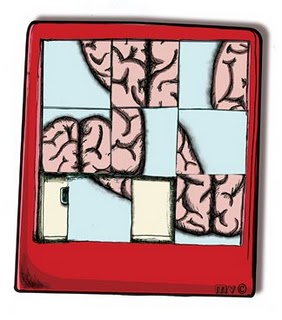We’re People, Too

The conversation began with a sister in the Lord thanking me for a note that I had written. I had learned that there had been some negative experiences in the career her adult son had chosen to pursue and that he had made the decision to abandon that pursuit.
I wrote the son a note and tried to encourage him. That was not the note, however, for which the mother was expressing her gratitude. I’m not sure she even knows about that note.
The note we were discussing was one I had written to her. In the course of trying to be helpful, I also let my “humanness” show. In that note, I tried to let her know (without providing any details) that, as a parent of two adult children, I could understand how it affects a parent when a child goes through difficult times. As many who read this will know, parents do not ever stop being concerned about their children; regardless of their ages.
As the sister and I discussed the note, she surprised me with one of her comments. It would not be an exaggeration to say that she shocked me.
Before I discuss what she said, let me first provide a little background. This lady is not somebody I’ve only recently met. My wife and I have known her and her son and have worshipped with them for almost twenty years. I had the privilege of baptizing her husband a few years ago. Since the death of her parents, she sometimes refers to Donna and me as her “adoptive parents” and has come to one or both of us for advice from time to time. We’ve laughed together, cried together, and had both casual and serious conversations. I was her preacher for sixteen years and still serve as one of the elders where she and her family worship.
All of that may help to explain my surprise (shock) at what she revealed to me during our latest conversation. I do not remember her exact words, but I will never forget the thought she conveyed to me. In so many words, she told me that, until she received that note, she had no idea that my family had ever had any problems.
While I don’t remember her exact words, I remember what I was thinking: “If you only knew.” That is not, however, what I said. What I said was:
“We’re people, too.”
I’ve thought a lot about that conversation during the past few days. I wonder if there could be “two sides to that coin.”
On one hand, I wonder if I or other preachers and our families come across as “always having it all together.” I wonder if I (we) “talk down” to people.
As I think back on my almost forty years of preaching, I can honestly say that neither of those was ever my intention. In fact, I would often let people know that I was preaching to myself and that the scripture and/or subject was something that I needed to hear.
I really don’t think that people who really know me consider me to be a “stuffed shirt” with no sense of humor at all. The truth is that my sense of humor has gotten me into more trouble than I like to admit at times.
While I think that those behind the pulpit could give people the wrong impression about ourselves and our families, I think that the “other side of the coin” might help to explain some of this as well. It may be the case that the people in the pews may also contribute to the misunderstanding.
Since I am no longer a “full-time preacher,” I pray that you will not consider what follows as self-serving in any way. At the same time, I pray that you will consider this as a sincere plea for those who are “still in the trenches” and who are doing their best to serve the Lord as gospel preachers.
Please look at these men and their families as “real people.” They hurt just like you hurt. They have bills to pay just like you do. They get sick just like you do and appreciate visits just like you do. They, like you, really appreciate it when somebody is thoughtful enough to “go the extra mile” for their family during times when they are ill. They don’t like unfair criticism any more than you do. Like everybody I know, they appreciate kind words, too. They lose loved ones just like everybody else and appreciate expressions of, and actions that demonstrate, sincere sympathy. They need somebody upon whom they can depend – especially during the tough times – just like you do. They are going to make mistakes and so will their children. Please extend to them the same courtesy and thoughtfulness that they have probably extended to you when you were going through similar circumstances.
I guess the suggestions could go on and on. I also guess that at least one appropriate way to end all of this would be to make one final plea.
As you interact with your preacher and his family, please remember that, somewhere deep inside of them, there is an unspoken desire and prayer. That desire/prayer is: “I hope that these people know that…
we’re people too.”
To Receive Every Article from A Legacy of Faith through Email for Free, Click Here
AUTHOR: Jim Faughn


